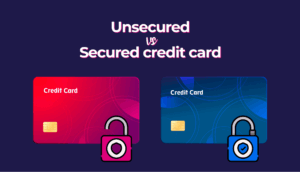In today’s fast-paced, ever-changing world, financial literacy has become more important than ever, especially for Generation Z. Born between the mid-1990s and early 2010s, Generation Z is currently at a critical stage in their lives, either entering the workforce, navigating higher education, or exploring new career paths. While the financial challenges of this generation may differ from those of previous generations, the need for financial education remains vital. In this article, we will discuss the importance of financial education for Generation Z, why it matters now more than ever, and how you can begin your journey toward financial empowerment today.
Why Financial Education is Crucial for Generation Z
Student Loan Debt and the Rising Cost of Education
For many in Generation Z, higher education is seen as the gateway to better job prospects and financial stability. However, the increasing cost of education, coupled with rising student loan debt, can be a significant financial burden. According to recent data, student loan debt in the U.S. has exceeded $1.7 trillion, with many young adults spending decades paying off loans. Without proper financial education, many may fall into the trap of excessive borrowing or not understanding how to manage debt effectively. Financial literacy can help Generation Z make more informed decisions when it comes to financing their education and managing student loans.
Navigating an Unpredictable Job Market
Generation Z is stepping into a job market that is volatile and unpredictable. The COVID-19 pandemic reshaped many industries, and the rise of automation and AI has changed the landscape of work. Many members of Generation Z are entering fields that are new and constantly evolving. Without a strong understanding of personal finance, it can be challenging to make smart choices about saving, investing, or even budgeting on an unpredictable income. Financial education provides the tools to navigate uncertain financial situations and develop skills that can lead to long-term financial success.
Building Wealth from the Start
One of the most significant advantages of learning financial literacy at a young age is the opportunity to build wealth over time. Starting early allows Generation Z to take advantage of compound interest and other investment strategies that can pay off in the long run. Whether it’s investing in stocks, contributing to retirement funds, or managing everyday expenses, learning how to make money work for you can set the stage for financial independence.
Understanding Digital Finance
Generation Z has grown up in a digital-first world. Mobile apps, online banking, cryptocurrencies, and peer-to-peer payment systems have revolutionized the way money is managed. However, the digital landscape also presents new challenges, such as cybercrime, online scams, and the temptation of easy-to-access credit. Financial education can help individuals understand how to protect themselves online and make informed decisions in an increasingly digital financial world.
How to Get Started with Financial Education
The good news is that it’s never too late to start learning about personal finance, and the earlier Generation Z starts, the better. Here are some practical steps to take today to begin your financial education journey:
1. Set Clear Financial Goals
One of the first steps in financial education is understanding what you want to achieve. Are you saving for a down payment on a house? Are you looking to pay off student loans or build an emergency fund? Setting clear financial goals will help you create a roadmap and stay motivated.
2. Create a Budget
Creating and sticking to a budget is one of the foundational principles of financial education. By tracking your income and expenses, you can identify areas where you can save and allocate money toward your goals. Many apps and tools are available to help you create a budget, making it easier than ever to manage your finances.
3. Learn About Credit and Debt
Understanding credit scores and how to manage debt is a key component of financial education. Generation Z should take the time to learn about the different types of credit, how to build good credit, and how to avoid falling into debt traps. Responsible credit card use and timely bill payments can help build a strong credit history, which is essential for major financial decisions, like buying a home or car.
4. Start Saving and Investing Early
While it might seem intimidating, learning about saving and investing is crucial for building long-term wealth. Start with the basics: open a savings account, set aside a portion of your income, and learn about the benefits of compound interest. Once you’re comfortable, you can move on to more advanced strategies, like investing in stocks, bonds, or retirement accounts such as IRAs and 401(k)s.
5. Take Advantage of Online Resources
There is a wealth of online resources, from blogs and podcasts to online courses and forums, that cater to financial literacy. Platforms like Khan Academy, YouTube, and personal finance blogs offer valuable information that is accessible and easy to understand. Make use of these free resources to continue learning and stay up-to-date on financial trends.
6. Seek Professional Advice
As you become more financially savvy, consider seeking professional financial advice, especially when it comes to major financial decisions. Certified financial planners can offer guidance on retirement planning, tax strategies, and investment opportunities, ensuring you make well-informed decisions as you progress on your financial journey.
The Benefits of Financial Education for Generation Z
The importance of financial education for Generation Z cannot be overstated. Here are some of the key benefits:
- Reduced Financial Stress: Understanding how to manage money can significantly reduce financial stress. When you have a plan in place for saving, investing, and managing debt, you’re less likely to feel overwhelmed by financial challenges.
- Increased Financial Independence: Financial literacy empowers Generation Z to take control of their financial future, making informed decisions that lead to greater independence and less reliance on others for financial support.
- Better Financial Outcomes: Individuals with strong financial knowledge are more likely to save money, avoid debt, and build wealth over time, resulting in improved financial outcomes over the long term.
- Empowered Decision-Making: Financial education equips you with the skills to make sound financial decisions, whether you’re choosing a career, buying a home, or starting a business.
FAQ
Q1: What is the best way for Generation Z to start learning about personal finance? The best way to begin learning about personal finance is to start with the basics: budgeting, saving, and understanding debt. Online resources, such as blogs, podcasts, and free courses, are excellent places to start. It’s important to focus on setting financial goals and creating a plan to achieve them.
Q2: How can I improve my credit score as a member of Generation Z? To improve your credit score, start by paying your bills on time, keeping credit card balances low, and avoiding taking on too much debt. Regularly check your credit report to ensure there are no errors, and consider using a credit-building card to establish a positive credit history.
Q3: Should I start investing in stocks or focus on saving first? It’s essential to build a solid savings foundation before you start investing in stocks or other higher-risk assets. Once you have an emergency fund and have paid down high-interest debt, you can consider investing. Be sure to start with lower-risk options, like index funds or retirement accounts, as you learn more about investing.
In conclusion, financial education is a critical life skill for Generation Z. By starting early, setting clear goals, and making informed decisions, this generation can navigate the complexities of modern finance with confidence. The journey to financial empowerment starts now, and every small step you take will lead to greater financial stability and success in the future.







